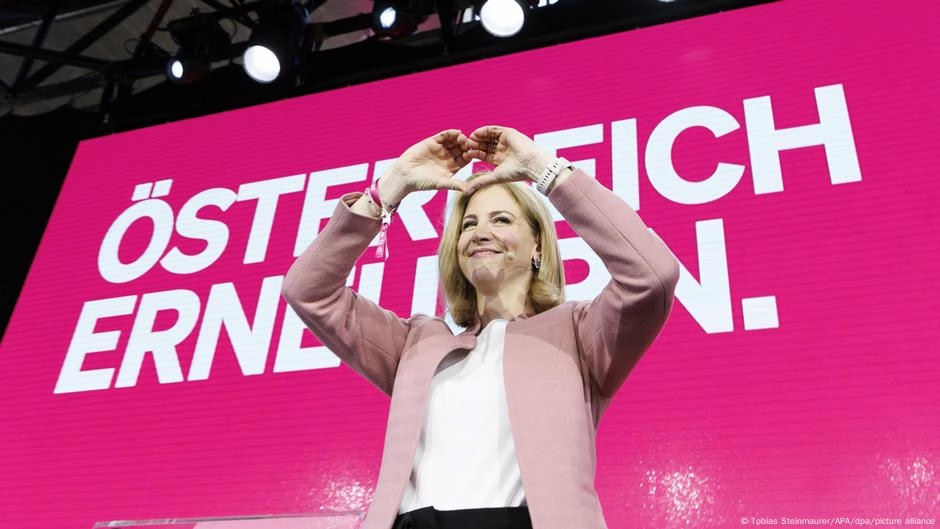The NEOS party, the smallest member of the coalition, has agreed to collaborate with Stocker’s conservative ÖVP and the center-left Socialist Democratic Party (SPÖ), which have already given their approval to the arrangement.
For months, Austria’s political landscape has been fraught with uncertainty following September’s parliamentary elections. The far-right Freedom Party (FPÖ) initially led the race but faltered in forming a government after protracted negotiations.
What Did NEOS Members Decide?
Approximately 2,000 NEOS party members voted in favor of the plan during a hybrid meeting in Vienna, with more than 94% supporting the 200-page coalition agreement.
According to party rules, the approval of two-thirds of the members was necessary.
Had NEOS failed to back the proposal, the ÖVP and SPÖ would have only a one-seat majority in the National Council, the lower house of parliament.
NEOS has never participated in a national government before.
Before the vote, Beate Meinl-Reisinger, the leader of NEOS, urged members to “make history” by supporting what she views as a move to bolster liberal democracy.
“Thank you! Work begins tomorrow!” she told the members after the vote, referring to the planned swearing-in of the new coalition on Monday.
In the new government, NEOS is slated to take the lead at the Foreign and Education Ministries.
The party’s agenda includes reducing state expenditures and bureaucratic hurdles, as well as pension reform.
The incoming government plans to tighten migration rules, implement austerity measures to address the budget deficit, and introduce a cap on rent increases.
Last week, FPÖ leader Herbert Kickl criticized the coalition as a union of “losers” and called for a snap election.
Months of Negotiations
Austria has experienced the longest delay in forming a government since World War Two, taking over five months.
Despite the FPÖ’s historic victory with around 29% of the vote, Austria’s president gave the conservative ÖVP the mandate to form a government. Other parties were reluctant to grant the chancellorship to the far-right party.
Following the breakdown of the ÖVP’s first attempt in January, FPÖ leader Herbert Kickl was given the mandate to form a coalition, but talks with the conservatives failed several weeks later.
Under pressure from Austrian President Alexander Van der Bellen, the ÖVP, SPÖ, and NEOS resumed negotiations and reached a coalition agreement on Thursday.
Germany, a neighboring country, is facing a similar challenge in forming a new coalition after parliamentary elections last Sunday.
Center-right leader Friedrich Merz, who topped the vote, is scheduled to begin talks with Chancellor Olaf Scholz’s Social Democrats next week over the formation of a coalition.
Coalition talks often require weeks or months to conclude, which can result in political gridlock.
Merz aims to finalize a ruling coalition within two months, citing Germany’s economic challenges and the uncertainty surrounding US President Donald Trump’s reelection.
German political parties have refused to partner with the far-right. The Alternative for Germany (AfD) party secured the second-highest vote with a record share of over 20%.
Edited by: Alex Berry








